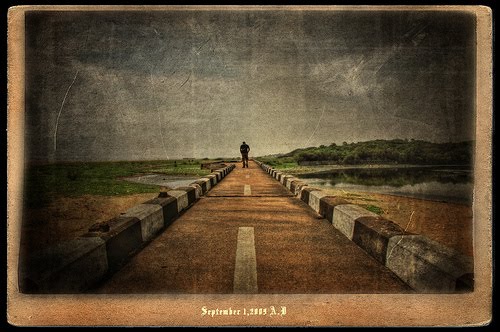Apparently it's possible for the Blogger.com editor to eat an entire post. I know this because it just happened. (sigh) I think after this I'm going to type my drafts into Word or Scrivener so that at least I'll have a rough draft to fall back on if Blogger feasts on my finished, polished, prose.
Anyway.
I'm going to take a day off from my Starburst Method series to talk about how to format a Word file for uploading to Amazon. I think everything I say will also be applicable to Smashwords but that platform may have one or two special requirements.
The Anatomy of a Formatted File
When your Word file is formatted ready for upload to Amazon it will have several sections. Below are the most common ones I've seen.
1. Title section
- Title- Author's name
2. Copyright section
- "Copyright"- Copyright symbol
- Person or company that is copyrighting the work.
3. 'Plain language' explanation of your wishes regarding whether your book should be copied without your permission.
4. Link(s) back to your website or blog, social media sites, etc.
5. Reading samples of your other books
6. Table of contents
7. ISBN number
8. Blurbs
- One or more authors telling prospective readers your writing is terrific.9. Book description
- Tell readers what your book is all about and hook them in 500 words or less.10. Acknowledgements
11. Dedication
12. The story
Many of these sections aren't mandatory and I've listed them here in no particular order. Yes, you'll probably want to start off with your title section, and certain sites will want you to put your copyright information up at the front of the book but, other than that, the order the sections come in is up to you.
What follows is just what I do. If you decide to do it differently--for instance, place your acknowledgement section at the back instead of the front--that's great! Do what works for you and the book you're publishing.
Required Sections
Here are the sections you need to have in your finished, formatted, file before you upload it to Amazon:
1. Title section
2. Copyright section
3. The story
That's it.
If you've never published a book before I'd suggest that you be kind to yourself, take things easy, and publish a short work and keep it simple. After you have one success under your belt and you're feeling bolder then start adding sections.
One section I would add, even if this is your first time, is a link section. This can be as simple as a link back to your website or blog. That way folks will know how to find you and your other work. (I'm taking it for granted that you have a website or blog where you list all your work.)
So that's what I'm going to talk about. Publishing a simple, bare-bones document with minimal formatting. No bells and whistles. But, first, let's get a couple of questions out of the way.
Do I need an ISBN number?
You don't need to have an ISBN number to publish your books on Amazon. It's easy to procrastinate publishing your first book because the process is unfamiliar and perhaps daunting. You can always get an ISBN number after you publish your story. The important thing is to publish it.
I do think it's a good idea to buy a block of ISBN numbers from (if you're in the US) Bowker. Here's a link to Bowker's extensive FAQS.
In Canada ISBN numbers are free but you have to be a publisher to obtain one. (See: How To Get A Free Canadian ISBN Number)
Do I need to register my copyright?
I'm not a lawyer, and this is NOT legal advice, but I think it's better to have something and not need it than need it and not have it. That said, you don't have to register your copyright in order for your work to be copyrighted. This is from Wikipedia:
It is a common misconception to confuse copyright registration with the granting of copyright.Having a copyright and protecting it are two different things. This is from the U.S. Copyright Office:
Copyright is itself an automatic international right, governed by international conventions - principally the Berne Convention (which dates from 1886). This means that copyright exists whether a work is registered or not. (Copyright Registration)
Do I have to register with your office to be protected?If you want to be in a position to defend your copyright in court it's a good idea to register your copyright.
No. In general, registration is voluntary. Copyright exists from the moment the work is created. You will have to register, however, if you wish to bring a lawsuit for infringement of a U.S. work. See Circular 1, Copyright Basics, section “Copyright Registration.”
Also, and as I'm sure you know, a number of sites pirate books--offer them free for download without the copyright holder's permission. If you find your book on one of these sites you have a chance of getting it taken down if you can provide proof of copyright.
Whether you want to register your copyright is up to you. You can publish your book without doing so.
Hello Amazon!
It's conventional that the first program one writes in a new language prints out: Hello World! Or at least that was true in my day. This is our equivalent. We're doing this to get the hang of things and show ourselves this publishing thing isn't scary at all. So go through your writing, do you have a short story that is finished, beta-read, proofed, edited, typo-free with sparkling prose that's ready to be uploaded?
Great! Let's do this.
The sections in our simple book
1. Title section
2. Copyright section
3. ISBN
4. Link to your website or blog
5. The story
6. Link to your website or blog
To Be Continued
Well, I'm at just over 1000 words so I'll end this post for today and pick it up again tomorrow.
Update: Here is the second installment in the series: How To Format A Word Document For Uploading To Amazon: MS Word Styles.
Have you ever published your work yourself? If so, what did you think of the experience? Was it harder than you expected? Easier?
Other articles you might like:
- The Starburst Method: Discovering Your Characters- The Magic Of Stephen King: An Analysis Of The Opening Paragraphs Of The Dead Zone
- How To Sell Books Without Using Amazon KDP Select
Photo credit: "Destination Unknown" by VinothChandar under Creative Commons Attribution 2.0.














